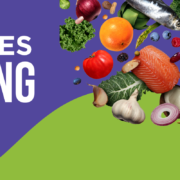Are you Well when you are not Sick?
What Does it Mean to be ‘Well’?
Many people believe ‘health’ and ‘wellness’ are terms that simply mean being free from disease, but there is so much more to being truly well!
Are you really well if you are overweight, forgetful, tired, moody, or have poor skin? What if you suffer from headaches, frequent colds, constipation or bloating? If you regularly experience these symptoms, you may not necessarily have a disease, but you aren’t truly well either. There are steps you can take to escape these frustrating complaints and enjoy true wellness.
Diets Fail, Lifestyle Changes Succeed
We have all heard the saying “You are what you eat,” but the truth is, “You are what you most consistently eat.” How many times have you started a diet with the best of intentions, only to find it too difficult to follow for more than a few weeks? Fad diets don’t help you to achieve long-term health goals. Realistic dietary changes that are sustainable are the best way to improve your health over the long-term. Seven sustainable dietary changes for wellness are:
 Include protein-rich foods in each meal or snack. Protein foods include fish, seafood, poultry, meat, eggs, dairy, and legumes.
Include protein-rich foods in each meal or snack. Protein foods include fish, seafood, poultry, meat, eggs, dairy, and legumes.- Enjoy a minimum of three cups of fresh vegetables daily: Choose from a variety of vegetables and aim to have a rainbow of colours on your dinner plate.
- Enjoy a minimum of two pieces or one cup of fresh fruit every day: Berries are an especially good choice as they are rich in antioxidants
- Limit starchy carbohydrates to two small serves per day: Aim for only 1 to 2 serves of bread, rice, pasta, cereal or potatoes daily.
- Include healthy fats in your diet: Healthy fats are found in cold-water fish, nuts, and seeds such as almonds, walnuts, brazil nuts, sunflower and pumpkin seeds, and cold-pressed oils such as olive oil, coconut oil, and flaxseed oil. Aim for 1 to 2 tablespoons of good quality oils per day and limit nuts and seeds to a small handful daily.
- Drink a minimum of eight glasses of pure water every day: Use natural flavourings such as fresh lemon, lime, and mint in water instead of soft drinks and cordials. Reduce excessive consumption of caffeinated beverages to 1 to 2 per day.
- Enjoy a ‘freedom’ meal once a week: A ‘wellness program’ is a life-long diet and lifestyle program. Allow yourself one or two ‘treat’ meals per week. Remember, “You are what you most consistently eat”.
Simple Supplements to Maintain Wellness
Research has shown there are natural supplements that can complement your wellness diet and lifestyle program such as:
 A high-quality fish oil to provide daily omega-3 for a healthy heart, supple joints, and healthy nervous system.
A high-quality fish oil to provide daily omega-3 for a healthy heart, supple joints, and healthy nervous system.- A high strength probiotic to maintain the balance in your digestive system.
- A daily multivitamin and mineral formula to fill any nutritional gaps that your diet doesn’t fulfill.
- A good quality antioxidant formula to promote healthy ageing and reduce the risk of developing chronic disease.
Live Well and Laugh a Lot!
Taking regular time out to relax is vital for wellness. Relaxation activities such as yoga, meditation or reading a book increase the levels of ‘feel good’ chemicals in your brain that make you feel happy. Laughter is the best medicine; seriously! Laughter reduces stress hormones, improves breathing and circulation, and can even improve your immune system. Relaxation and laughter are important additions to any wellness program.
You Can Achieve Your Goal of Wellness
You don’t have to settle for feeling ‘just ok’. You can achieve wellness by making simple, sustainable changes to improve your energy, health, and wellbeing over the long-term.
Contact Your Wellness Centre about getting your wellness prescription today!
Ring 9879 9596 or email health@yourwellnesscentre.com.au

 Include protein-rich foods in each meal or snack.
Include protein-rich foods in each meal or snack.  A high-quality fish oil to provide daily omega-3 for a healthy heart, supple joints, and healthy nervous system.
A high-quality fish oil to provide daily omega-3 for a healthy heart, supple joints, and healthy nervous system.





Leave a Reply
Want to join the discussion?Feel free to contribute!